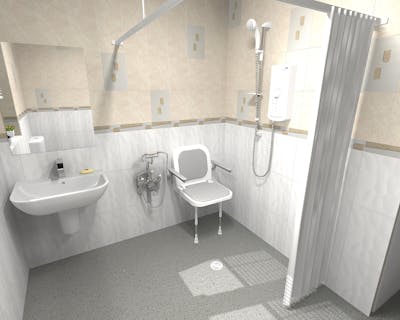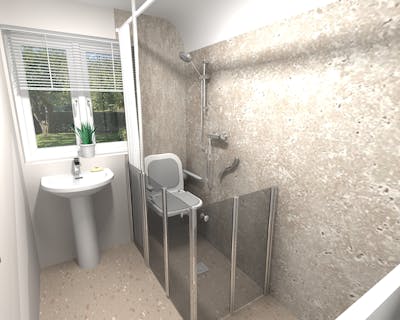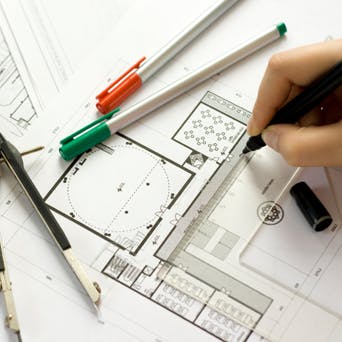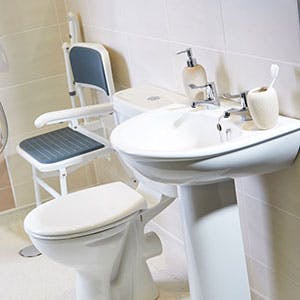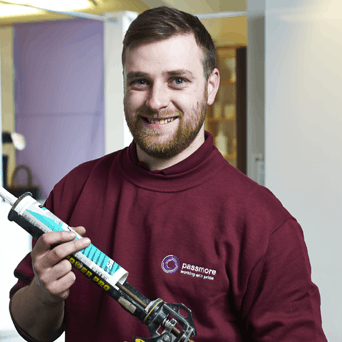Guide To Bathing Disabled Children | More Ability
Published: 20 July 2016
Bathing children can be a troublesome, stress fuelled task (on both parts) at the best of times. It is one of the most common parenting problems with many young children not liking bathing for a number of different reasons including:
1. Fear of water / not liking water on their head or face (sometimes a result of being overly receptive to sensory experiences due to skin thinness & sensitivity)
2. It is seen as an unnecessary task that interrupts ‘play time’ or whatever fun they were having prior.
3. It is not part of their routine. Granted you may bathe your child everyday however is it at the same time and pre/post the same scenario? Is it predictable?
The secret with bathing a young one is to make it fun. Make it entertaining, make it enjoyable, and make it routine. In this day and age there are many a different products, waterproofed toys and handy home DIY initiatives you can introduce into bath time to turn your tantrum toddler into a splish and splash smiler.
But how do you cope or what do you do if your child is disabled or suffering from an impairment?
Bathing children with a
disability, physical impairment, mental illness or sensory impairment can
increase the trauma, difficulty and unpleasantness for both parent and child tenfold.
Everything mentioned earlier with
regards to reasons kids dislike bathing are still ever present in this
situation however heightened as a result of them not always being able to process,
understand or comprehend what is happening and why.
All that said much of the same applies with regards to increasing the fun however it is ever as important in this situation to make it safe and reduce any amount of risk.
Overcoming bathing difficulties for children with disabilities and psychical impairment.
In the early days, between the ages of 1 & 4, many a DIY bathing adaptation, integrated with an existing, run of the mill suite, would help make bath time easier, safer and more enjoyable for both parties.
Equipment like inflatable cushions, molly bathers and bespoke lift aids would help bathe a young one in a comfortable environment while reducing the strain often caused through manoeuvring. Best of all the vast majority of these kinds of DIY adaptations are transferable meaning you’ll be prepared for an enjoyable experiences home or away.

As your young one gets older, often from 5 years +, it becomes extremely difficult to cope, even with DIY adaptations. Although inflatable cushions and molly bathers etc. are good solutions they are not overly sustainable.
This is often due to the nature in which they are used. In layman’s terms they are an-add-on and not a bespoke solution in their own right. The trouble is as your child grows they become heavier and harder to handle. The constant strain on ones back with lifting them up and over the frame can become too much, sometimes causing prolonged damage.
At this stage you may wish to consider a specialist bathing solution to increase safety, both child and parent, and help with manoeuvrability. Solutions like a self-controlled bath lift with leg support, a built in transferable bath seat, rise & recline bath system and a height adjustable bath with hoist support system are just a number of available solutions.
Baths with built in shower components and wash boards (top and side entrance) are another alternative for ease of washing and moving, helping to increase overall safety. In this scenario it is also advisable to ensure the bath is situated within a water tight room (wet room for example with slip resistant vinyl) as water is renowned for going everywhere. Some may even wish to encourage this in order to splash & play, making it a fun and enjoyable experience which is another key component to bathing your child at this age.

Improving bath time for children with mental illness and/or sensory impairment
When it comes to bathing a child with a mental illness or sensory impairment / processing disorder it’s important to make bath time fun while at the same time evoking the senses. This can be done at any age with some arguing the earlier the better.
To ease the amount of possible trauma while increasing the level of enjoyment and fun it is advised that the following tips should be integrated into a bathing routine (routine being a crucial description here as a robust and consistently timed scheduled are as ever important as the next 6 tips).
1. Warm the bathroom to closer resemble the temperature of the water. A less dramatic temperature change can make a world of difference on initial reaction and therefore endured experience.
2. Ensure your solution is integrated with a hand held shower head that has the option of multiple flow options and water dispenses. Being able to change the flow of the water ensures you have full control over how hard or soft, quick or slow the distribution is meaning you and your child can come to an agreement on what they prefer.
3. Lighting is so important in general bathroom design but even more so when looking to overcome any form of sensory impairment. Dimmer lighting is advised to create a calmer and more relaxing environment however colour water pebbles, submersible LED lights and even a few drops of food colouring have been used in the past to evoke the senses and create a more enjoyable bathing experience where learning can be incorporated also.
4. Music, not only the food of love as Shakespeare once wrote but also the food of fun. To create a fun, relaxed, happy and enjoyable environment it is suggested to ingrate a sing-a-long stylee bathing experience. The ever popular ‘rubber ducky’ and ‘splish, splash I’m taking a bath’ are the timeless classics that kids of all ages can enjoy while encouraging sensory exposure and spoken communication – another great educational tool.
5. Washing materials. It may sound like an odd tip however not only should sponges be soft, fluffy and delicate to touch to overcome any amount of skin sensitivity it is advised to make the most of this handy washing tool and make it a learning experience by means of animal or number sponges. The more a child engages with something the more likely they are to welcome it into part of their routine and learn some names and numbers along the way.
6. Smell is a huge sensory element and an important one in the bathroom department. There is that much choice with regards to home smells and bathroom aromas that the hard part is finding out what smells your child likes and using it to your advantage. Bath bombs, bubble baths, soaps, reed diffuses, shampoos and conditioners are just an example of the aromatic products available - you just need to find a smell that’s liked and incorporate into said products.
Although this article makes it sound like bathing a disabled child is a walk in the park we fully appreciate the time, effort, involvement, worry and stress that goes with it. The products and tips mentioned above are a guide to helping ease those struggles in order to make bathing safer and more enjoyable for all involved. If you have any questions or queries regarding any of the above please do not hesitate to get in touch on 0113 201 5030.
MoreAbility*, part of the Passmore Group, is Yorkshires leading and most experienced bath & shower room specialist for all types of stylish, safe & practical and bespoke solutions. Offering a fully project managed design & installation service we pride ourselves on meeting individual wants, needs and aspirational requirements for both the public & private sector.
Share this Post




.jpg?auto=compress%2Cformat&cs=strip&fit=clip&h=400&ixlib=php-1.1.0&w=400&s=9fa3862dd64550f902ce5099d00692fb)
